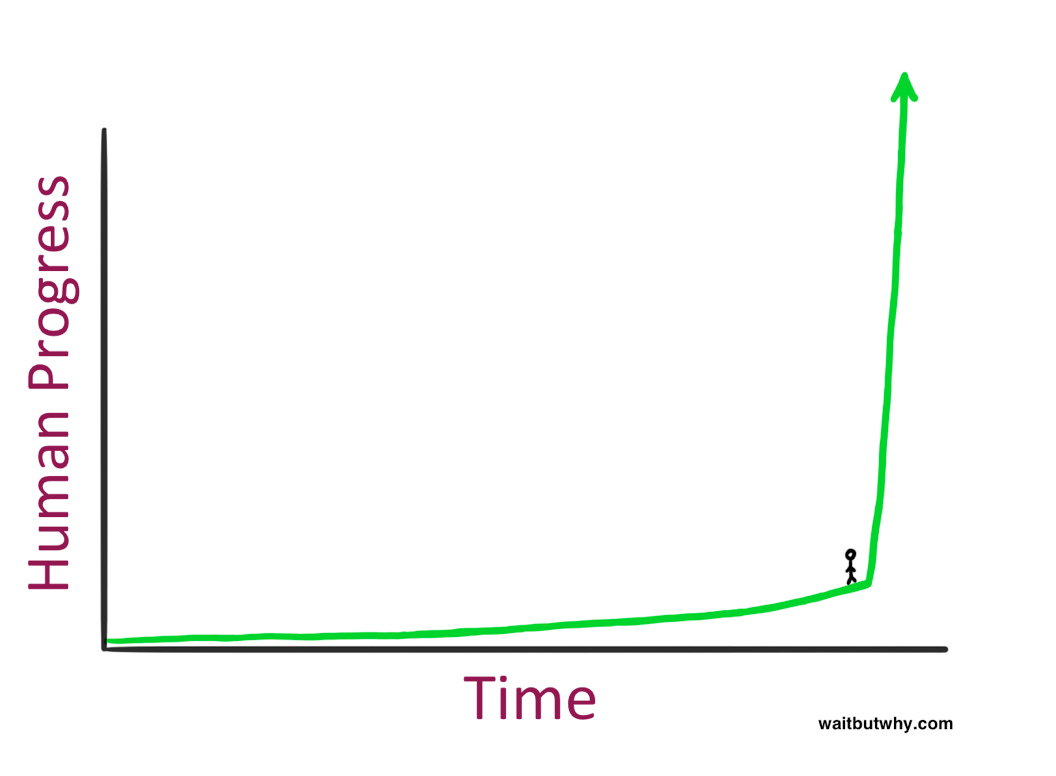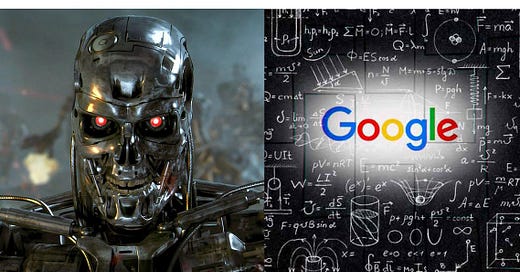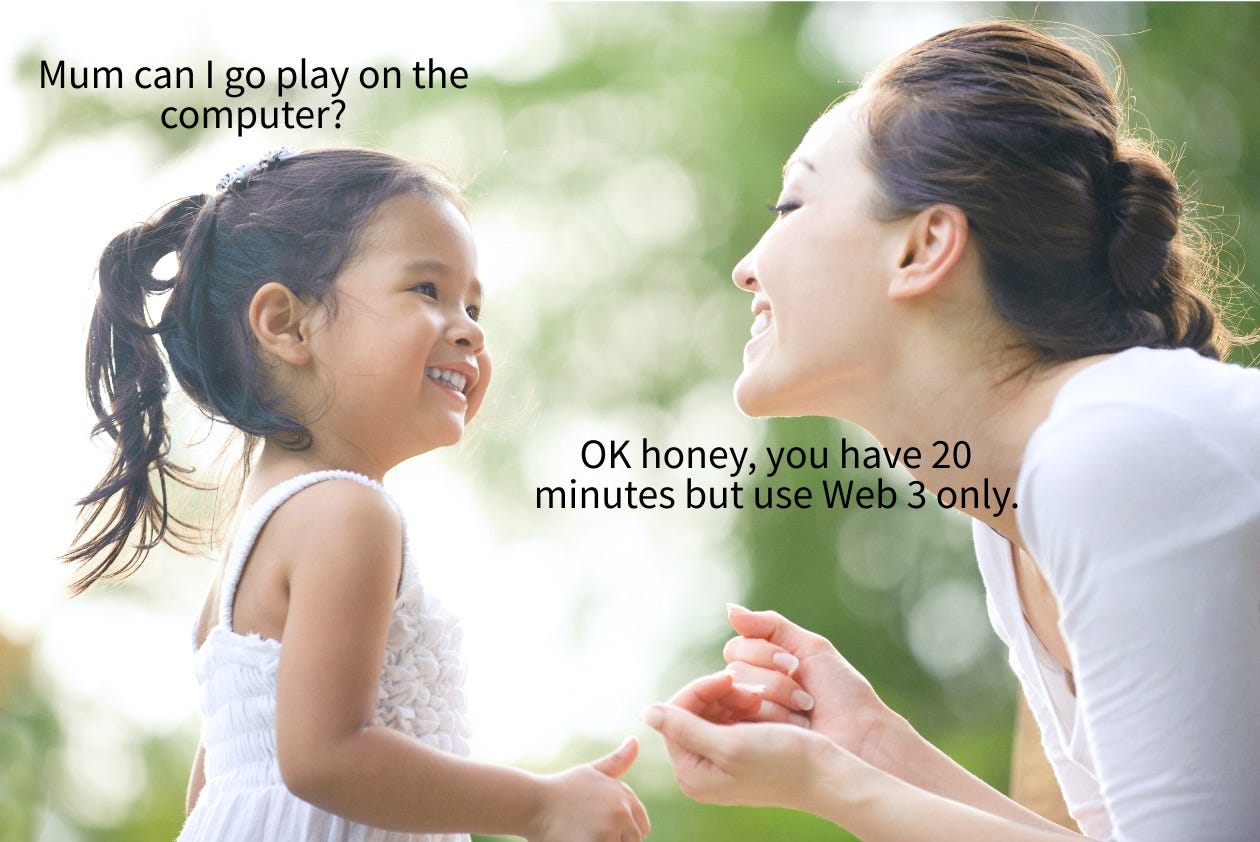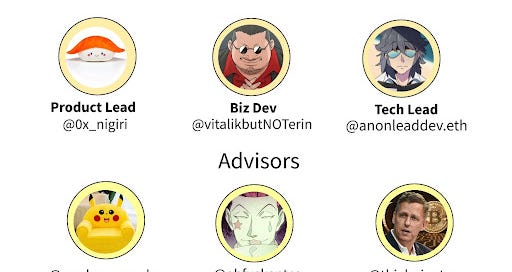The Web 3 buzzword is getting some traction despite being around for some time. In late 2021 prominent Web 2 entrepreneurs and investors discussed the essence of Web 3 on Twitter. Not sure if Elon bought or sold the top but he certainly did inspire a fiery debate.
Let’s talk about buzzwords. The good thing about them is that they are reflexive; having a memetic quality to convince people that something ought to be real.
The bad thing about buzzwords is that they are vague; they mean everything and nothing at the same time.
Take one of the most ubiquitous buzzwords of our time - AI, or artificial intelligence. More than talking about specific progress in the machine learning or algorithm design domain, the AI meme has encapsulated a narrative about the exponential improvement of technological progress.

I do not think that the AI meme is necessarily wrong but at this point seems to be a bit overbought. What do you mean when you say AI? Robots taking over the world? Computer beating a human in a game of chess?
It seems that the next big AI breakthrough is always around the corner. Meanwhile, the black box algos of Google, Facebook, and Twitter have a great impact on everyday interaction with ourselves and others.
This is not an article about AI. I am making a point that buzzwords are memes that do not mean anything but at the same time, they could be describing important technological and societal trends.
Has anyone seen AI? - I can’t find it. That’s because there is no specific place where AI resides. The same goes for Web 3.
These potential technological revolutions are not televised. They are silent gradual changes in the way we interact with ourselves and society at large. Most do not even notice as it’s happening. We only notice after it happens.
Web 3 2 1 Go!
A lot has been written about Web 3. The general problem with a concept like Web 3 is that it is described as some point of arrival. “Yesterday was Web 2 and today we have arrived at Web3!” This evokes a feeling of Web 2 ending where Web 3 begins.
But the relationship between these might be a bit more fluid and nuanced than imagined. Going back to the pre-internet era when the internet was a buzzword - it was sold as a destination. At the time many thought that the “destination Internet” is useless because:
It’s an unorganized mess of information
People have TV and radio so why bother
Most people don’t have an internet connection
It’s unnecessarily complicated UX
No one is using it!!!
Yet we ended up living in the Internet Era.
To understand concepts like the internet prospectively we should think about a subtle user preference or a consumer choice rather than a fixed destination towards where we're all headed. It only requires a small course diversion to be headed into an entirely new direction.
Web 3 is a meme. Memes inherently reduce nuance to percolate through the society’s DNA. Web 3 pitched as a destination is fine because individual founders come and try to reverse-engineer the meme and then backtrack from it to a specific product they are building in the present.
Through forces of emergence and reflexivity, the initial product will evolve and might play a big role in the way we interact with the web in the future. Two or three successful products can cause a massive shift in user preference.
The current Web 3 talk is indeed mostly fluff. Especially if presented by the LinkedIn power-user corp types. But while most jump on the buzzword bingo bandwagon, few are building the foundational products that will create new internet bundles.
Web Infinity
Let me clarify the definitions of some of the words mentioned above.
Bundle and Unbundle
There are two ways to capture value in the market - to bundle and unbundle. The internet enabled us to build a new value chain. The new value chain is based on innovation that creates a new point of integration. Everyone aligns to a new point of integration. The winner bundles and everyone unbundles around it.
Emergence
A new bundle goes hand in hand with emergence. Call it spontaneous order or self-organization. This phenomenon is often described as the result being greater than the sum of its parts. Cells make organs, organs make a human - that sort of thing.
Reflexivity (again)
People often misunderstand this concept. They are just thinking about numbers going up or down. What it truly means is that the number transforms our understanding of the world and even the physical reality as it moves either way.
When dealing with these phenomena our predictive power diminishes. What we know is that there is a great effort towards Web3ness. In that sense Web 3 emerges as a set of products that give users a choice.
“Web 2 to Web 3” scale would define how decentralized your Web experience is or how much ownership you want to impose on the digital world you are visiting and creating in. Rather than picturing Web 3 as a fixed tech stack, it could be imagined as a fluid personal consumer choice.
My money's on the Web3ness being a likely evolution of the internet and our interaction with ourselves, others, and AGI overlord. I believe the buzzword of Web 3 is similar to the mythical AGI (Artificial General Intelligence). It could be here any time. It is always around the corner. But maybe it never arrives.
Bitcoin and Ethereum were pioneers in unbundling monetary systems. Web 3 projects implicitly aim at unbundling finance and online commerce at scale. I believe that some will be successful at achieving that. Are we going to call it Web 3 then? - I think we will make up a new noise to make with our mouths based on some apps we’ll be using and call it that.
Tribal economies in the cloud are already a reality. In the next couple of years we will find out what becomes of the 24/7 online permissionless casino and how many of the internet users will opt in to play according to the new construct we are imposing on the digital world.
Subscribe to Wrong A Lot
Musings of the optimist



















